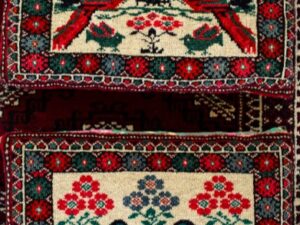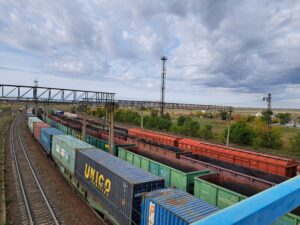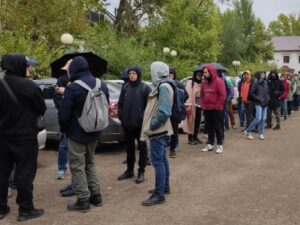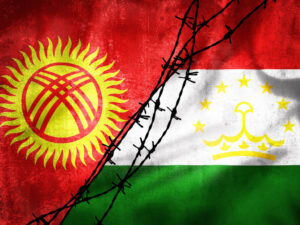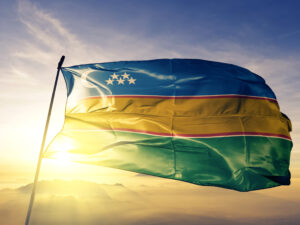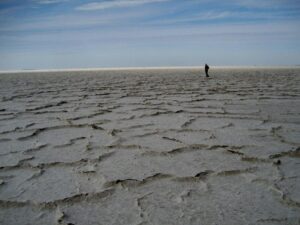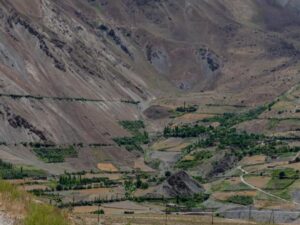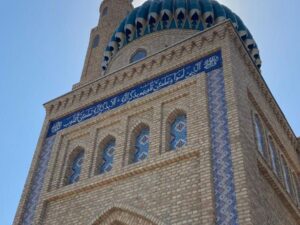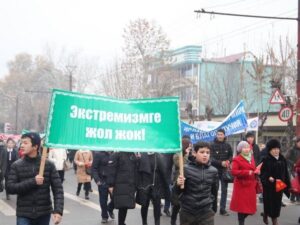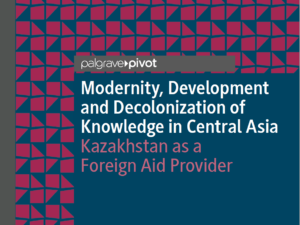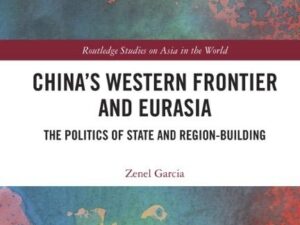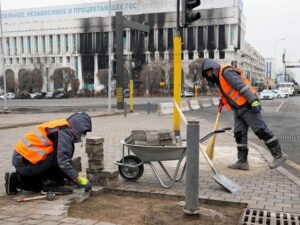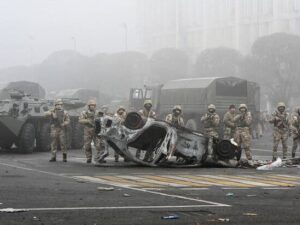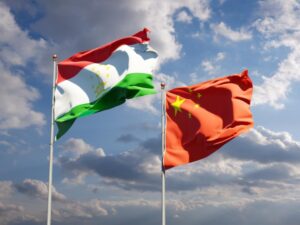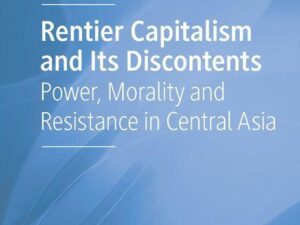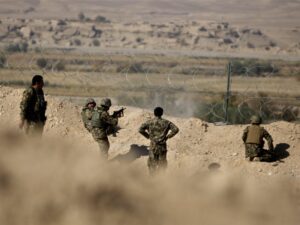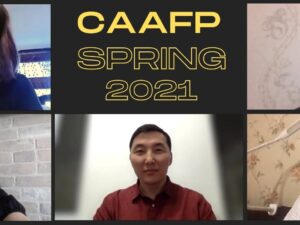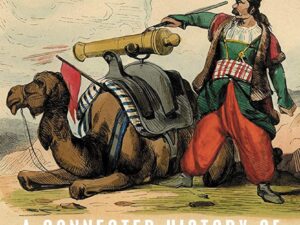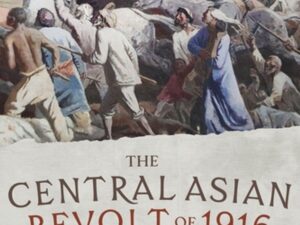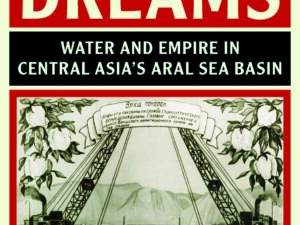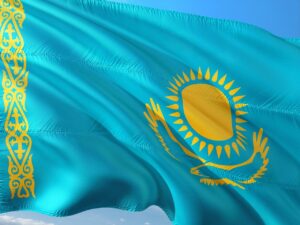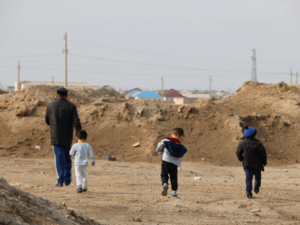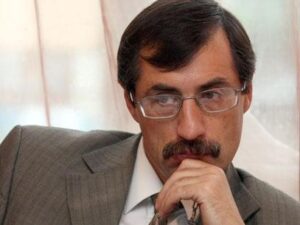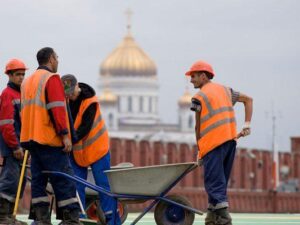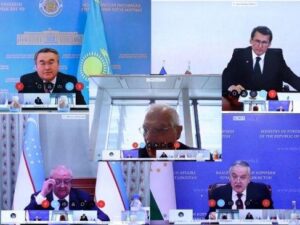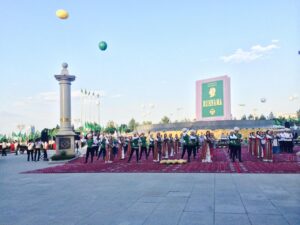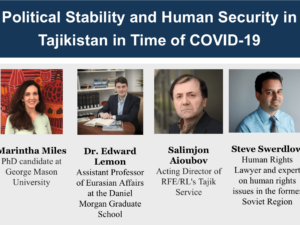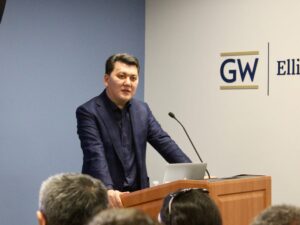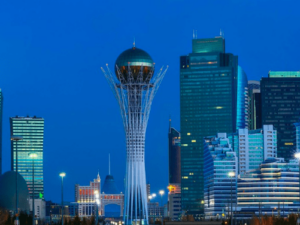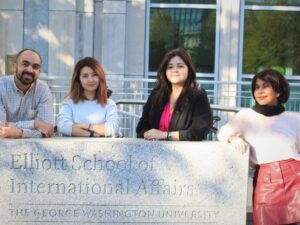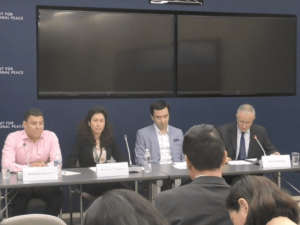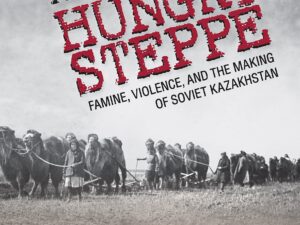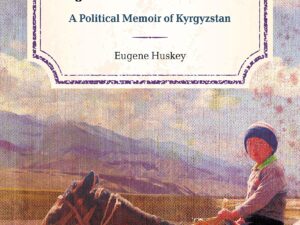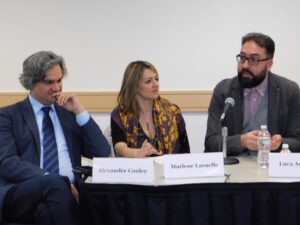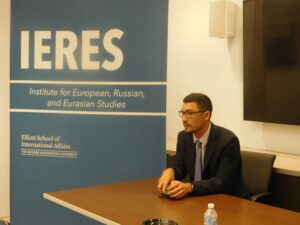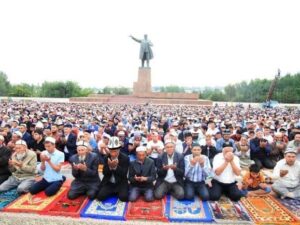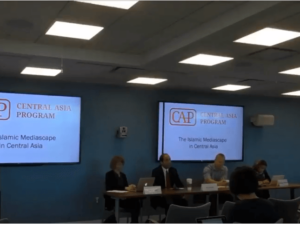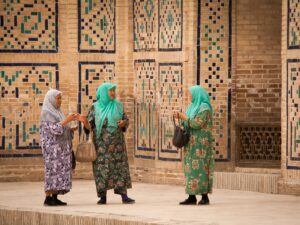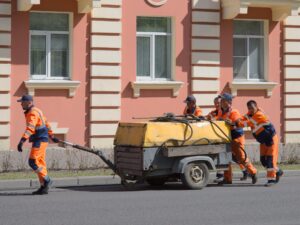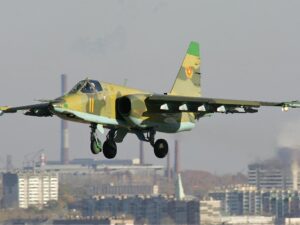
- This event has passed.
Central Asia’s Aral Sea: Lessons for Today’s Climate Crisis
11 December, 2023 @ 9:00 AM – 10:30 AM
Hybrid Event, Image by NASA Earth Observatory
Once one of the world’s largest inland bodies of water, the Aral Sea began to shrink dramatically in the 1960s, when Soviet officials directed an increasing volume of water towards cotton production. As a result of the declining water levels, the climate and ecology of the surrounding region changed. Dust storms carried toxins from the exposed seabed and agricultural chemicals across Central Asia. People who lived near the sea began to experience a dramatic increase in health problems and the sea’s once vibrant fishing industry collapsed.
Writing at the height of the Cold War, many Western analysts framed this disaster as a uniquely Soviet story. Communist politics, they argued, were solely responsible for what had occurred. Today, however, it is clear that many aspects of the Aral Sea disaster are not unique. Bodies of water around the globe, including Lake Chad in Africa and Lake Mead and the Great Salt Lake in the United States, are drying up. These disasters all bear a striking resemblance to the Aral Sea story. Rather than a uniquely distinctive event, the disappearance of Central Asia’s Aral Sea should be seen in many respects as a harbinger of our own future, as we confront the threat of climate change and adjust to a world of water scarcity.
This panel brings together a distinguished group of Aral Sea experts, including scholars and practitioners, to discuss what we can learn from the Aral Sea’s retreat and how we can apply this knowledge to address climate crises in the future.
Speakers

Sarah Cameron is associate professor of history at the University of Maryland, College Park. At present, she is at work on a book, Aral: Life and Death of a Sea. In 2022, Dr. Cameron was named an Andrew Carnegie Fellow, and funds from the Carnegie Corporation will support her research on the Aral Sea. Additionally, she is the author of The Hungry Steppe: Famine, Violence, and the Making of Soviet Kazakhstan(Cornell University Press, 2018), which examines a little-known crime of the Stalinist regime, the Kazakh famine of the 1930s. The book won numerous awards in the United States. It also provoked intense discussion in Kazakhstan where the famine remains a sensitive topic, in part due to Kazakhstan’s close relationship with Russia. Russian and Kazakh translations of the book have been released. Dr. Cameron received her PhD in history from Yale University.
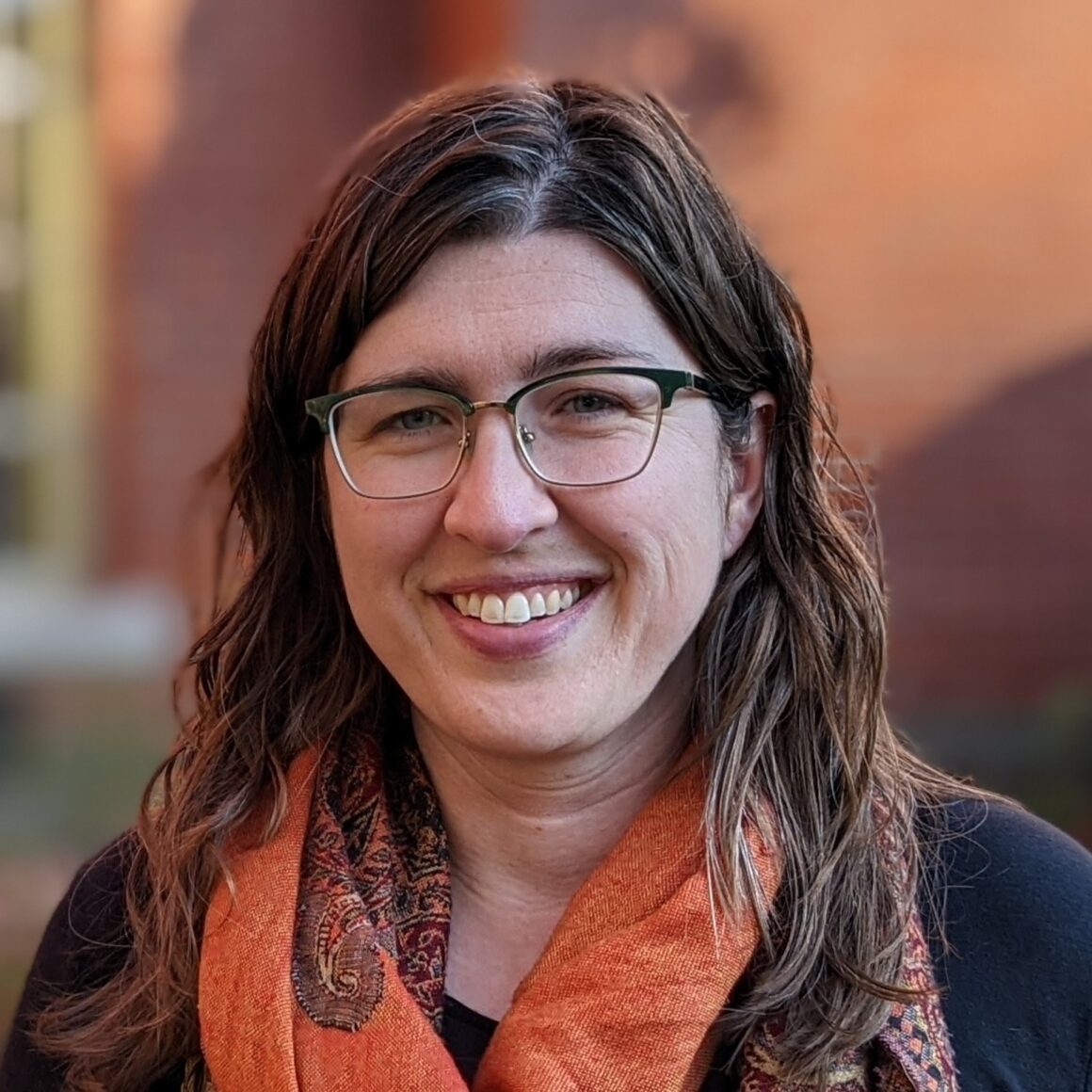
Kate Shields is an Assistant Professor in the Environmental Studies & Sciences Program at Rhodes College in Memphis, Tennessee. Her research focuses on rethinking development and environmental transformation in the Aral Sea region of Uzbekistan. Kate received her PhD in Geography from the University of Oregon.
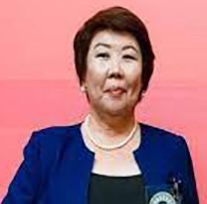
Zauresh Alimbetova is Acting director of the Executive Board of the International Fund for Saving the Aral Sea. Ms. Alimbetova develops recommendations on water legislation in the Republic of Kazakhstan, ensures monitoring and implementation of state programs on rational use of water resources and the transition of the Kazakhstan to the Green Economy model. She participates in the work of the Interstate Commission for Water Coordination.
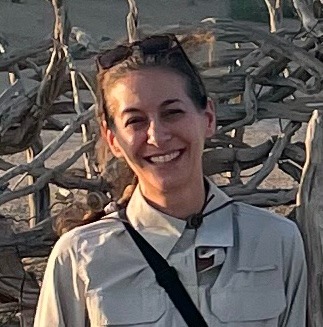
Elizabeth Brites is a Clinical Associate Professor in the John Martinson Honors College, Purdue University. She is an archaeologist of the Aral Sea Basin who has worked on international field projects in the region since 2005, first as a contributing member of the Karakalpak-Australian Expedition to Ancient Chorasmia and, following this, as Project Co-Director of the Khorezm Ancient Agriculture Project. She was a 2018 National Geographic Explorer and holds a PhD in anthropology from the University of California, Los Angeles. Her research explores human-environment relationships in ancient Central Asia with a focus on water and agriculture. Her publications have appeared in top-tier academic journals including The Holocene, the Journal of World Prehistory, and the Journal of Political Ecology, among others.
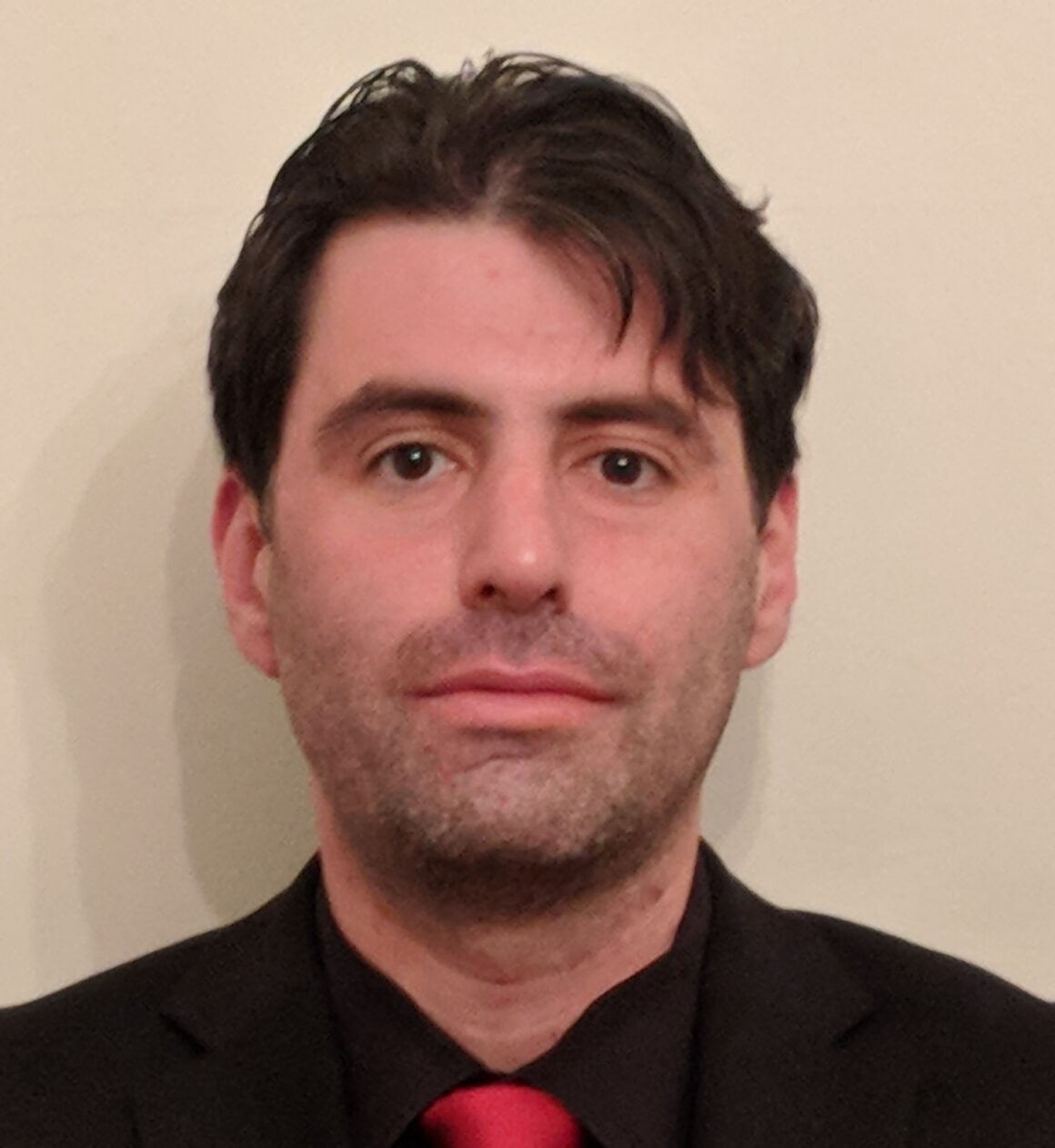
Wilder Alejandro Sánchez is President of Second Floor Strategies, a consulting firm in Washington, DC. He is an analyst who monitors defense and security, geopolitical, and trade issues across the Western Hemisphere, Eastern Europe, and Central Asia. For several years, he has researched Kazakhstan’s foreign policy, defense, and environmental issues. His chapter, “A Frontier Market in the COVID-19 Era: Kazakhstan’s Economic Diversification in the 2020s,” was published in the book Central Asia and the Covid-19 Pandemic (SpringerLink). His essay “Kazakhstan’s Green Strategy: Keeping the Steppe Green,” appeared in a 2023 issue of the SAIS Review of International Affairs.
Moderator

Sebastien Peyrouse is Director of the Central Asia Program and Research Professor, IERES, The George Washington University. His main areas of expertise are political systems in Central Asia, economic and social issues, Islam and religious minorities, and Central Asia’s geopolitical positioning toward China, India, and South Asia.



